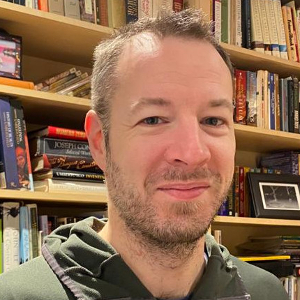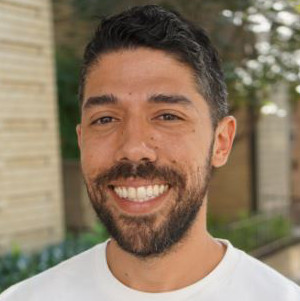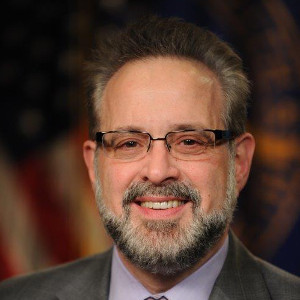Emory University
Heather Bradley, PhD
Principal InvestigatorHeather Bradley, PhD

Heather Bradley is an Associate Professor of Epidemiology at Emory’s Rollins School of Public Health. She is an infectious disease epidemiologist whose main research interests include surveillance methodology, racial disparities in HIV and hepatitis C infections, and the intersection of infectious diseases with the U.S. opioid epidemic. During the past few years, her research has focused largely on racial disparities in COVID-19 outcomes. Before joining Emory, she served on the faculty at Georgia State University School of Public Health. Prior to that appointment, she spent eight years at the Centers for Disease Control and Prevention in positions ranging from Epidemic Intelligence Service (EIS) Officer to Associate Chief for Science in the Division of HIV/AIDS Prevention.
Monica Trigg, DrPH, PMP
Project DirectorMonica Trigg, DrPH, PMP

Monica Trigg is a Director of Programs in the Department of Epidemiology. Before joining Emory in 2013, Monica supported a number of global health initiatives with CARE, The Carter Center, and the Peace Corps. These roles took her on many incredible adventures across the world and provided exposure and built expertise in real-world public health concerns and programs through which to address them. She also spent five years with the Georgia Department of Public Health with the Immunization Program, first as a regional program officer and then as the Vaccine Manager, overseeing distribution of federally-purchased vaccine to the state’s 1,500+ immunization providers. Monica is currently pursuing a Doctorate in Public Health with the University of South Florida.
Anastasia Carter, MPH
Project CollaboratorAnastasia Carter, MPH

Anastasia Carter is an Associate Director of Research Projects at Emory Rollins School of Public Health. She manages daily operations of a CDC and NIH-funded research portfolio, including stakeholder engagement among 50+ federal, state & local collaborators, financial & resource management, and project dissemination for research initiatives that inform public health interventions in HIV, HCV, and harm reduction. She previously coordinated recruitment efforts in clinical research studies on genetic disorders and precision medicine, driving successful participant engagement at both Children’s Healthcare of Atlanta and Morehouse School of Medicine.
Natalie Crawford, PhD
Project CollaboratorNatalie Crawford, PhD

Dr. Crawford is an Associate Professor in Behavioral, Social and Health Education Sciences in the Rollins School of Public Health at Emory University. She serves as the Co-Director of the Prevention and Implementation Sciences Core in the Center for AIDS Research at Emory. Trained in social epidemiology, she received her PhD and MPH in Epidemiology from Columbia University’s Mailman School of Public Health. Dr. Crawford completed her post-doctoral training at the University of Michigan as a Robert Wood Johnson Health and Society Scholar. She graduated from Spelman College where she trained in Women Studies and Biochemistry. Her NIMH-supported research examines the impact of structural interventions in pharmacies on reducing racial inequities in HIV. She is currently advancing the implementation science of HIV prevention services in pharmacies in the US Southeast.
Razieh Nabi, PhD
Project CollaboratorRazieh Nabi, PhD

Dr. Nabi is an endowed Rollins Assistant Professor in the Department of Biostatistics and Bioinformatics at the Emory Rollins School of Public Health, with a secondary appointment in the Department of Computer Science at Emory College of Arts and Sciences. She specializes in causal inference, missing data, machine learning, and data science, with a focus on healthcare applications.
Patrick Sullivan, DVM, PhD
Project AdvisorPatrick Sullivan, DVM, PhD

Dr. Sullivan is a Professor in the Department of Epidemiology and has 20 years of experience in infectious disease epidemiology, mostly focused on the use of information from public health data systems to improve responses to the US HIV epidemic. In his work as an EIS officer, an epidemiologist, and a manager in CDC’s Division of HIV/AIDS Prevention, he has supported state and local health departments in the implementation and interpretation of surveillance and programmatic data. At CDC, he served as Chief of the Behavioral and Clinical Surveillance Branch, Acting Chief of the HIV Incidence and Case Surveillance Branch, and Acting DHAP Deputy Director for Science. He has published >150 manuscripts, including several high-impact models, was a Deputy Editor of Public Health Reports, and currently serves on the boards of PLoS ONE and Annals of Epidemiology. Sullivan is the co-director of the Center for AIDS Research Prevention Core, coordinating dissemination of prevention technologies and HIV prevention training/technical assistance.
Ya-Hui Yu, PhD
Project CollaboratorYa-Hui Yu, PhD

Dr. Yu is an Epidemiologist in the Department of Epidemiology. Her research focuses on causal inference and its applications in perinatal epidemiology and pharmacoepidemiology and she has extensive experience working with large administrative databases. Prior to joining Emory, she was a faculty member at Georgia State University.
Johns Hopkins University
David Dowdy, MD, PhD
Site PI, Project LeadPublications
David Dowdy, MD, PhD

Dr. Dowdy is an Assistant Professor of Epidemiology, practicing general internist, leader in the field of TB and TB/HIV modeling, and Director of the Johns Hopkins Tuberculosis Modeling Group. His expertise combines operational/implementation research, epidemiology, health economics, and mathematical modeling. He has published >75 peer-reviewed manuscripts, constructed >10 economic models of interventions to fight TB and TB/HIV and has interests in constructing models that account for local distribution of disease, as well as user-friendly models that can be accessed by public health decision-makers. He , won the International Union Against TB and Lung Disease’s Young Investigator Award in 2012 and leads twice-monthly conference calls (>100 group members) that highlight the importance of linkages between TB modelers and public health practitioners (podcasts available at modeltb.org), which include participants from the CDC and local health departments.
Sourya Shrestha, PhD
Project CollaboratorSourya Shrestha, PhD

Sourya Shrestha is a Research Associate in the department of Epidemiology at the Johns Hopkins Bloomberg School of Health. He received his doctoral training in applied mathematics from the University of Michigan, and postdoctoral training in ecology and epidemiology of infectious diseases at Michigan and Hopkins, respectively. He is interested in developing mathematical and computational models of epidemiology of infectious diseases, and to ultimately use them to design and inform effective public health interventions. Although he maintains interest in the epidemiology of pneumococcus and dengue virus, tuberculosis (TB) is the primary focus of his current research. Some of his recent and ongoing work includes (i) understanding the heterogeneity of TB in the context of targeted interventions; (ii) modeling dynamics and control of domestic TB in the US (in collaboration with the CDC); and (iii) developing models to inform active case finding efforts in Pakistan and Bangladesh (in collaboration with IRD), and in Nepal (in collaboration with IMPACT TB team).
Lucia Cilloni, PhD
Project CollaboratorLucia Cilloni, PhD

Lucia is a post-doctoral fellow in the Department of Epidemiology at Johns Hopkins Bloomberg School of Public Health. She has earned her PhD in Epidemiology from Imperial College London in 2020, working on modelling the impact of active case-finding interventions for TB in high burden settings, with a focus on India. Her research interests are focused on using mathematical modelling and cost-effectiveness to inform health programs and interventions, as well as policy. At Hopkins, she is involved in projects looking to integrate care across different infectious disease (in collaboration with the CDC), address disparities in TB disease, and model the impact of synergistic interventions to achieve greater reduction of TB incidence (in collaboration with CHAI).
Jeff Pennington, BS
Project CollaboratorJeff Pennington, BS

Jeff began programming at an early age and has used his skills as a problem solving tool for more than 20 years. After joining the Johns Hopkins team in 2014, he began to explore the disease modeling space through different projects and discovered a new set of problems to which he can apply his knowledge. His areas of interest include systems and parallel programming, novel web-based UI's and program optimization
Oregon Health & Sciences University
Eric Hall, PhD
Site PI, Project leadEric Hall, PhD

Eric Hall is an assistant professor of epidemiology at the Oregon Health & Science University-Portland State University School of Public Health, where he teaches methodological and substantive graduate-level courses in the epidemiology and public health practice programs. His research focuses on the development and utilization of epidemiologic, statistical and economic evaluation methods to provide data that have a direct implication on public health programs or policy. His ongoing work leverages models to quantify the disease burden of viral hepatitis and evaluate the cost-effectiveness of hepatitis B vaccination and hepatitis C screening policies.
University of Washington
Deven Hamilton, PhD, MPH
Site PI, Project LeadDeven Hamilton, PhD, MPH

Dr. Hamilton is a research scientist in the Center for Studies in Demography and Ecology at the University of Washington. He has been conducting research in the HIV/STI field for over 15 years in both the US and Africa with a focus on the evaluation of prevention interventions including voluntary medical male circumcision, home-based testing, RNA testing and pre-exposure prophylaxis. Dr. Hamilton specializes in statistical methods and mathematical modeling approaches to HIV/STI prevention research. As a member of CAMP Dr. Hamilton has developed network-based mathematical models of HIV transmission among adolescent populations.
Jessica Godwin, PhD
Project CollaboratorJessica Godwin, PhD

Jessica Godwin, Ph.D. (she/they) is a Statistical Demographer at the Center for Studies in Demography & Ecology (CSDE) at the University of Washington (UW). In addition, they are the Training Director for the Graduate Certificate in Demographic Methods at CSDE. They received their Ph.D. in Statistics from UW with a focus in Demographic Methods. Dr. Godwin’s broad research interests include survey statistics, Bayesian methods, spatial statistics and small area estimation, demographic methods and the areas where all of these things overlap. Their main motivation in research is the “real world” problem and potential impact of the solution, focusing on interesting statistical and computational problems while maintaining a connection to the humanity on the other side of the data.
Steven Goodreau, PhD
Project CollaboratorSteven Goodreau, PhD

Steven Goodreau, PhD, is a Professor of Biological Anthropology and Adjunct Professor of Epidemiology at the University of Washington, where he has been since 2001. Coming of age as a gay man during the early years of the HIV epidemic, Steve combines his academic loves of mathematics, biology, and demography with his life experience to study the sexual networks of gay, bi, and other men who have sex with men. As part of the statnet and EpiModel teams, he has co-developed many methods and tools to collect, analyze and simulate dynamic sexual networks and the pathogens that spread within them. He has applied these methods to a wide range of questions about the origin and reduction of HIV and STD disparities and the impact of both behavioral and biomedical interventions. He has also conducted work on HIV evolution, on HIV and STDs in other populations, and, most recently, on pregnancy declines in US adolescents. He has been a member of Team CAMP since 2015. A native of the underappreciated State of Rhode Island, Steve fulfilled a life dream in late February 2020 when, just days before lockdown, he appeared on Jeopardy! with the late, great Alex Trebek. He loves dogs, running, and transit-based urban exploration.
Christine Khosropour, PhD, MPH
Project CollaboratorChristine Khosropour, PhD, MPH

Tim Menza, MD, PhD
Project CollaboratorTim Menza, MD, PhD

Tim Menza is an infectious disease specialist with advanced training and expertise in HIV, STI, and viral hepatitis prevention and care. Tim has extensive experience in creating, implementing, and evaluating public health policy and advocating for communities through public health system-level change. As medical director of Oregon’s HIV/STD/TB program, Tim facilitated the implementation of a free statewide home HIV/STI testing program, public health accountability metrics for the prevention of congenital syphilis, partnerships with correctional facilities to increase HIV/STI/HCV testing, and led Oregon’s response to mpox. Tim is currently an associate professor in the department of medicine at the University of Washington and a medical director of the Sexual Health Clinic with Public Health—Seattle & King County.
Advisory Core
Michelle Allen, MPH
Positive Impact Health Center, IncMichelle Allen, MPH

Michelle L. Allen is the Director of the Research and Development Institute at Positive Impact Health Centers and is recognized for her contributions to public health education. She has served as Chair of the National Coalition of STD Directors, is an active speaker at national conferences, and has been awarded for her contributions, including being the first recipient of the Brenda Fitzgerald Leadership award from the Georgia Department of Public Health. Ms. Allen is a distinguished alum of Georgia Southern University and a member of Sigma Gamma Rho Sorority Inc., an organization she devotes her time to through community service.
Thomas Bertrand, MPH
Rhode Island Department of HealthThomas Bertrand, MPH

Thomas Bertrand, MPH, is the Chief of the Center for HIV, STDs, Hepatitis, and TB at the Rhode Island Department of Health. During his twenty years in public health, Tom was the Executive Director of AIDS Project Rhode Island and the STD Director for the Massachusetts Department of Public Health. Tom has an undergraduate degree in biology from Vassar College and a masters in public health in epidemiology from the State University of New York at Albany.
Pedro Carneiro, PhD, MPH
Center for Interdisciplinary Research on AIDS (CIRA)Pedro Carneiro, PhD, MPH

Pedro B Carneiro, PhD, is a Research Fellow at the Center for Interdisciplinary Research on AIDS at Yale University and recently earned his PhD in Community Health and Health Policy from the CUNY School of Public Health and Health Policy. He previously served as the Clinical Data Scientist at the National Association of Community Health Centers (NACHC), where he led data-driven initiatives for CDC- and HRSA-funded projects focused on HIV and sexual health prevention, serving over 4 million patients. Prior to NACHC, he was the Director of Population Health at Callen-Lorde Community Health Center for seven years, where he oversaw implementation science projects and advanced EHR-based quality improvement initiatives. His work bridges social determinants of health with clinical outcomes, leveraging technology, data analytics, and community partnerships to advance population health and health equity globally.
Kenneth Castro, MD
Professor, Emory University SPHKenneth Castro, MD

Physician-scientist trained in epidemiology, with a specialty in internal medicine and subspecialty in infectious diseases. An award-winning author of > 185 scholarly publications, he serves as a peer reviewer for numerous scientific journals and associate editor for the International Journal of Tuberculosis and Lung Disease and Emerging Infectious Diseases. A native Puerto Rican, Dr. Castro has served as expert advisor to the Puerto Rico Department of Health, the Pan American Health Organization, World Health Organization, and several Ministries of Health in countries where HIV and tuberculosis (TB) constitute major public health problems. His work includes spearheading the 1993 revised classification system for HIV infection and expanded surveillance case definition for AIDS among adolescents and adults, and estimating the burden of latent TB infection in the U.S. and in TB cases and economic costs averted over the span of two decades.
Jeffrey Crowley, JD
Director of Infectious Disease Initiatives, Georgetown Law O’Neill InstituteJeffrey Crowley, JD

Jeffrey S. Crowley, MPH is a Distinguished Scholar and Director of the Center for HIV and Infectious Disease Policy at the O’Neill Institute for National and Global Health Law at Georgetown Law. He also serves as an adjunct professor of law. From 2009 to 2011, he served as the Director of the White House Office of National AIDS Policy and Senior Advisor on Disability Policy. As President Obama’s chief HIV/AIDS advisor, Mr. Crowley led the development of the first comprehensive National HIV/AIDS Strategy for the United States. From 2000 to 2009, he was a Senior Research Scholar at Georgetown University's Health Policy Institute and subsequent to its founding, a Senior Scholar at the O'Neill Institute focusing his work on improving health care for people with HIV and other disabilities and chronic conditions through improvements to Medicaid and Medicare. Mr. Crowley also served in senior positions at the National Association of People with AIDS from 1994 to 2000. He served as a committee member and editor of the National Academy of Sciences, Engineering and Medicine 2021 report, Sexually Transmitted Infections: Adopting a Sexual Health Paradigm. Crowley provides expertise in health care financing and public policy as a member of the CAMP 3.0 Advisory Core.
John Douglas, MD
Colorado School of Public HealthJohn Douglas, MD

Dr. Douglas is the recently retired Executive Director of the Tri-County Health Department, where he directed the largest local health department in Colorado and served in leadership positions for the Colorado Association of Local Public Health Officials and the Metro Denver Partnership for Health, a regional public health collaboration. Previously he served as Director of Sexually Transmitted Disease (STD) Control at Denver Public Health and as a Professor of Medicine (Infectious Diseases) and Preventive Medicine at the University of Colorado School of Medicine in Denver, and subsequently as Director of CDC’s Division of STD Prevention and Chief Medical Officer of the National Center for HIV, Viral Hepatitis, STD, and Tuberculosis Prevention. Dr. Douglas is a recognized expert in the field of STD prevention, having published over 150 scientific papers, and has served in a public health advisory capacity for the Center for Applied Modeling Prevention since 2015.
Gregory “Grey” Felzien, MD AAHIVS
Medical Director, Positive Impact Health Center, IncGregory “Grey” Felzien, MD AAHIVS (they/them)

Dr. Gregory “Grey” Felzien (they/them) received their medical degree from the University of Colorado School of Medicine, completed their internship and residency at Vanderbilt University and infectious diseases fellowship at the Medical University of South Carolina. They hold board certification in internal medicine and infectious diseases and is certified as an American Academy of HIV specialist. Currently, Dr. Felzien is the medical director within Positive Impact Health Center, Inc. and the Tb medical advisor for the GADPH Southeast Health District. Dr. Felzien has been involved with Emory CAMP since their inception, CAMP 1.0.
Sara Glick, PhD
University of Washington, Public Health – Seattle and King CountySara Glick, PhD

Dr. Glick is an infectious disease epidemiologist and Associate Professor of Medicine at the University of Washington (UW) whose research focuses on understanding substance use patterns, co-morbidities, and disease prevention strategies among people who use drugs. She also works as an epidemiologist in the HIV/STD Program at Public Health – Seattle & King County (PHSKC) where she oversees CDC-funded and local surveillance projects. Dr. Glick oversees the UW’s Strengthening Harm Reduction Programs (SHaRP) team which conducts surveys of people who use drugs and provides technical assistance related to monitoring and evaluation at harm reduction programs.
Prabhu Gounder, MD, MPH
LA County Department of Public HealthPrabhu Gounder, MD, MPH

Dr. Prabhu Gounder is a medical epidemiologist with the Los Angeles County Department of Public Health where he oversees surveillance and outbreak response for reportable infectious diseases including viral hepatitis. Dr. Gounder also leads the implementation of multiple State and Federal grants that support surveillance for chronic viral hepatitis, improved data exchange for linkage to care, and promoting collaboration among community stakeholders along the viral hepatitis care continuum. Dr. Gounder’s other responsibilities include overseeing the County’s genomic epidemiology program and establishing a wastewater testing program. Dr. Gounder is a fellow of the American College of Physicians and maintains medical staff privileges at Cedars-Sinai Medical Center.
Jane Kelly, MD
South Carolina Department of HealthJane Kelly, MD

Dr. Kelly is the Assistant State Epidemiologist at the SC Department of Health and Environmental Control. Dr. Kelly has over 35 years of clinical and public health experience in HIV, STI, and TB at the local, state and federal levels, including as a medical officer in the DHAP HIV Incidence and Case Surveillance Branch, Director of the HIV/AIDS Epidemiology Unit in the Georgia Department of Public Health, and as a Tuberculosis Control Officer with Indian Health Service (IHS).
Boatemaa Ntiri-Reid, J.D., MPH
National Alliance of State & Territorial AIDS Directors (NASTAD)Boatemaa Ntiri-Reid, J.D., MPH

Boatemaa Ntiri-Reid (Bwa-tee-mah In-tee-ree Reed) is the Senior Director, Syndemic Approaches at NASTAD. In this role, she leads integration of HIV, viral hepatitis, and drug user health into a united framework for improving outcomes across these intersecting issues. Prior to her current role, she served as NASTAD’s Director, Hepatitis and oversaw programmatic and policy technical assistance initiatives related to viral hepatitis. Prior to NASTAD, Boatemaa served as Chief of the Center for Viral Hepatitis at the Maryland Department of Health, worked as a health law attorney focused on HIV legal services, and served as a Ryan White HIV/AIDS Program project officer in Baltimore City. Boatemaa received her B.A. from the University of Michigan-Ann Arbor, M.P.H. from Columbia University, and J.D. from the University of Maryland School of Law.
Ron Valdiserri MD, MPH
Professor, Emory UniversityRon Valdiserri MD, MPH

Ronald O. Valdiserri is a Professor in the Department of Epidemiology, Rollins School of Public Health, Emory University. Prior to joining the faculty at Emory, he served as Senior Research Associate and Distinguished Scholar in the Department of Health, Behavior and Society at the Johns Hopkins Bloomberg School of Public Health (2016-2019). Dr. Valdiserri’s career in public health includes 26 years of federal service in senior leadership positions at the U.S. Centers for Disease Control and Prevention, the U.S. Department of Veterans Affairs and the Office of the Assistant Secretary for Health, U.S. Department of Health and Human Services (DHHS). From June 2010 through December 2015 he served as the Deputy Assistant Secretary for Health, Infectious Diseases (DHHS); in that position he was responsible for oversight of the National HIV/AIDS Strategy and the National Viral Hepatitis Action Plan. In addition to developing national policies and programs to control HIV, other sexually transmitted infections, tuberculosis and viral hepatitis, he has published numerous scholarly articles on public health policy and practice and has authored/edited four academic texts related to HIV and LGBT health. Dr. Valdiserri chaired the National Policy Advisory Group that provided feedback to CAMP investigators during the previous cooperative agreement cycle.